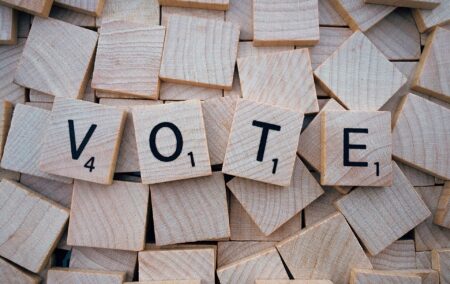I’m too young to have participated in the fight for the right to vote for all the people of South Africa. I do, however, remember the stories from history class at school, and the pride I felt looking at photos of the queues on 27 April 1994.
When I asked the people who had committed to voting in the 2024 National and Provincial Election (NPE) through the #PledgeToVote campaign, I learned that the memory of the struggle is still a strong motivator for many South Africans to go to the polls. (Another common motivator is the cliché “If you do not vote, you cannot complain.”)
However, as the memory fades, voter turnout is declining. There are several reasons for this, from administrative barriers (“I forgot to register”) to social and psychological barriers (“Politicians don’t care about making my life better”). The hope we felt as a nation in 1994 is being squashed by high unemployment, low economic growth, failing infrastructure, and corruption.
The only way to get out of this mess is to hold the politicians accountable for the decisions and actions that got us here. The most powerful way to do that is to vote.
How did the campaign work?
The #PledgeToVote campaign is an initiative of the Institute of Race Relations (IRR) and was partially funded by the Konrad Adenauer Institute (KAS). It aimed to enhance democratic participation in South Africa through an online “Voter Pledge”, via which people would commit to voting in the 2024 NPE.
The campaign mechanism was simple: people signed the Pledge, either through the dedicated website or Facebook ads. Once they had committed, they received a series of automated emails designed to address specific barriers to voting: a prompt to check their registration status or reflect on their motivation for voting, for example.
As election day drew nearer, signatories also received reminders about special vote application deadlines. Just before election day, another series of emails prepared them, physically and mentally, for voting day by prompting them to check the weather, plan their route to the voting station, and pack a snack along with their ID.
The replies to these emails revealed some gaps in voter education, so I frequently updated the Frequently Asked Questions (FAQ) page on the #PledgeToVote website to help fill these gaps in an accessible, practical way.
Between its launch in February 2023 and the end of the campaign on voting day, 29 May 2024, the Pledge gained over 54,000 signatories, over 6,000 of whom checked their registration status through the campaign. The campaign reached over 1,2 million people, and campaign ads were viewed over 8 million times.
So, did they vote?
After election day, I surveyed the signatories, asking them whether they had voted. They were also prompted to rate their experience from very positive to very negative.
The response was overwhelmingly positive: over 95% of the respondents said they had voted, and over 80% reported a positive experience. When asked to elaborate, it was clear that experiences varied widely: from 13 hours in the queue to a 10-minute in-and-out experience. Some IEC officials were “inefficient” and “rude”, but most of them were “helpful”, “friendly”, and “competent”.
Many older respondents said they could skip the queue, despite there being no official provision for people over a certain age. Though there was some grumbling from those without grey hair, this practice was widely accepted without a fuss. Elsewhere, an electoral commission might have had to create an official provision for people unable to stand for a long time, but in South Africa, our innate respect and compassion seem to be enough.
I’m sure most of us would prefer to vote in 10 minutes or less, but then we’d miss out on the most concentrated, tangible feeling of democracy: all South Africans coming together, chatting with one another, and eventually voting for our future.
As one respondent described their voting station queue: “The vibes were electric”. Another claimed they queued for hours, “but it was worth it!!!”.
What’s next?
Despite the enthusiasm (and patience) of voters, turnout declined to a record low – 58.57% – in the 2024 NPE.
Democracy is a continuous process and far from guaranteed. Whether South Africa’s democracy stays intact depends on voters and now that the ANC has lost its majority, politics just got a lot more competitive. Now’s the time for the people of South Africa to take their future into their own hands.
The #PledgeToVote team is looking forward to encouraging people to use their voting superpower at the next national elections, the 2026 Local Government Elections.
If you like what you have just read, support the Daily Friend

